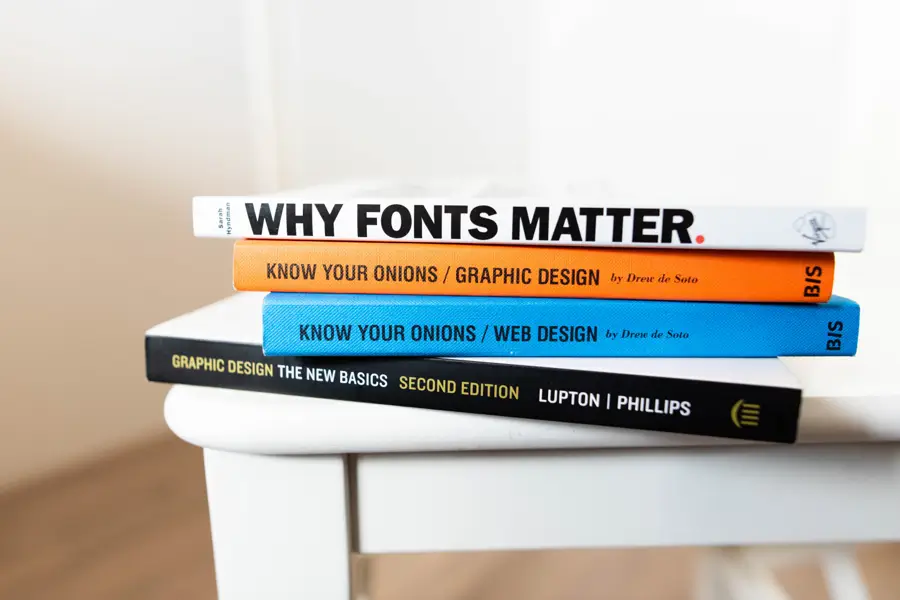
BUSINESS BASICS

Applied broadly, an art career can mean many different things. Some art careers involve working for a design company, an advertising agency, or a gallery. Others involve working in the corporate world. But for most artists, the goal is eventually to go into business for themselves and use their talent and their passion to make a living as their own boss.
It sounds like a terrific idea on the surface, but starting your own business is full of difficulties, stress, and unexpected obstacles – no matter the industry. In the art world, it can be even more difficult to start your own business because there are so many other people out there who have similar ideas and skill sets. The market is full of talented artists starting their own businesses, so it is crucial that aspiring art business owners find a way to stand out and stay financially solvent.
So, we have put together a list of keys that will help you start your art career and build a successful art business so that you can achieve your aspirations.
This is easily the most important key to starting your successful business, and that is why we put it first. There is no such thing as an industry monopoly. Any industry will undoubtedly have plenty of businesses offering similar or the same product, and it can be especially hard for consumers to differentiate between all the options.
The truth is, no matter how talented you are and no matter how awe-inspiring your art may be, many consumers will not be able to tell the difference, and when faced with a choice, they will almost always choose the most convenient option. This is why you need to find a niche product, something that others aren’t offering, something that will make you and your business unique and recognizable.
Maybe that means focusing on portraits if you are an accomplished painter, or 3D designs if you are a graphic artist. No matter what the niche is, you should try to find one. That doesn’t mean you can include your other art in your business, but you will find a much more passionate customer base if you specialize in one type of art and become known for your ability to create that one type of art.
At this point, we have interviewed dozens of artists who are running their own businesses, and the majority of these artists always say that the trickiest part of starting their own business wasn’t selling their art. It was grasping the basic tenets of business that apply to any independent venture. The goal of any business is to turn a profit, and in order to do that, you will need to know how to accurately price your art, deal with accounts payable and receivable, and identify a concrete revenue model, amongst other things.
This doesn’t mean you should put your art business on hold while you go back to business school and become a financial expert. It just means that you should read books, take introductory classes, and talk to people who have already created a thriving independent business, and you should do these things before you launch your business.
At its core, running your own business is the same for anybody, no matter what it is that you are selling. If you are able to understand how your business works and how to keep it afloat, you will be far more likely to turn your business into a thriving livelihood.
We mentioned this point briefly in our last key, but it is worth repeating and elaborating. Networking is important in any industry, even if you aren’t planning to go into business for yourself, but it is especially crucial for artists looking to start their own businesses. Not only will this network potentially help you find customers and increase your brand and name exposure, but it will also be a one-of-a-kind support resource that you can lean on when you run into trouble or have questions.
Make no mistake: no matter how well you have planned out your business construction, things will go wrong, and unexpected obstacles will crop up. But if you have a stable of contacts who have fought through these obstacles before, you will have a much easier time overcoming these obstacles. Find people who you can trust and are not just willing to help you upon request, but are eager to help you even if you don’t think you need it. From the artists we have spoken to in our interviews, there are plenty of art business owners who understand the perils of starting your own business, and most are more than willing to lend a helping hand and their advice to someone in that position.
Asking for help – especially when you are starting your own business – can be embarrassing and make you feel self-conscious about your knowledge, but you can’t be afraid to ask for it. You will learn from your mistakes as you experience them, and that is a good thing in most cases. But if you can consult others who have been there before you, you may be able to learn how to rebound from the mistakes without actually making them in the first place.
As an artist going into business for yourself, your biggest asset isn’t necessarily your artwork; it is your name recognition. The quality and diversity of your artwork are obviously important, but in theory, you could be a terrible artist. if people recognize your name, you will still find business.
Some artists have gotten lucky and landed appearances on television shows like Project Runway or Cupcake Wars, which has opened the door to plenty of new customers. But you can’t exactly bank on a television appearance to kickstart your business, so in lieu of time on the tube, you should start promoting yourself as best you can.
If you are one of those stodgy and stubborn people who refuses to adapt to our increasingly social world, it’s time to change professions, because social networks like Twitter, Facebook, Pinterest, and Instagram are cheap and potentially effective tools to promote your work and establish a voice as an artist. Also, your website can serve as your virtual portfolio. You want to add some personal information so that customers can relate to you and become impressed by your accomplishments, but you also want a chance to show off some of your work, so that potential customers know what they are dealing with.
Self-promotion and branding are basically essential in building a successful business in any industry, but especially in art. Unless you have an enormous network of friends who are going to spread your name and work via word of mouth, you should probably start tweeting and pinning. Just be careful, because there is a fine line between self-promotion and annoyingly aggressive promotion.
Have we mentioned that starting your own business is hard yet? Well, let’s reiterate that point. No matter how talented you are and no matter how much help you have, building a successful business from scratch is fraught with peril and failure. The sooner you accept how much hard work will go into this venture and how many obstacles you will need to overcome, the better off you will be.
The quickest way to ensure your business will fail is to get discouraged at the first sign of trouble. Since we have already established that trouble will happen, and things may look bleak at times, especially in the beginning, you are now prepared to face those issues and stay upbeat. If you psych yourself out and end up getting discouraged at the first sign of difficulty, then you are probably better off not trying to build your own business from the ground up.
The construction and subsequent success of your business won’t happen overnight. Heck, it might not even happen in the first year of its existence. But giving up will only cement its failure. Everyone has a different way of coping with impending defeat and fighting back against gloom and doom. Find out what the best way to stay positive is for you, and then start believing in your business plan, even in the face of impossible odds. If you believe in your business and believe in your ability as an artist, then you will find a way to create a successful business, even if it doesn’t happen in the way you had initially envisioned it would.

The Art Career Project is a trusted resource for emerging and professional artists.